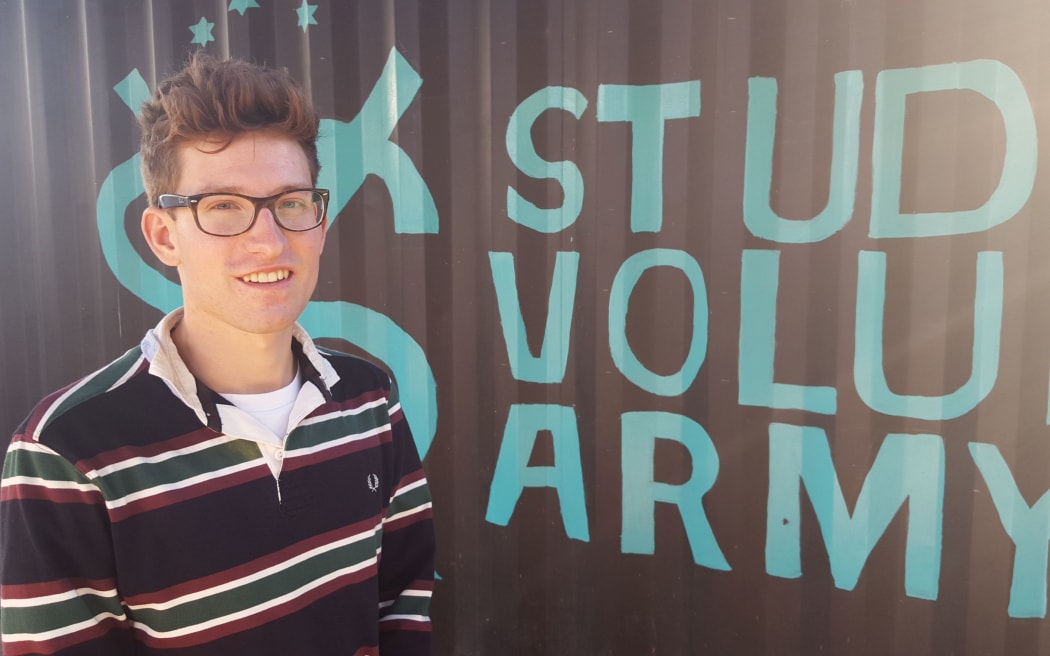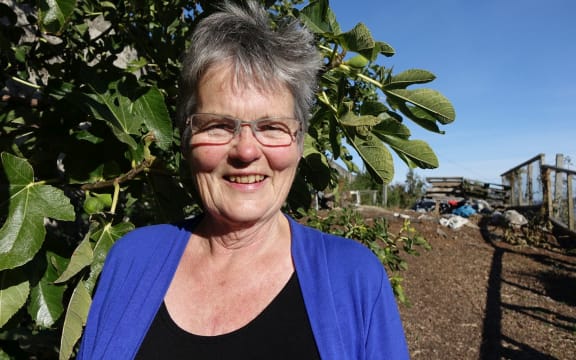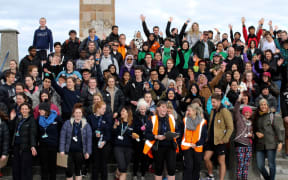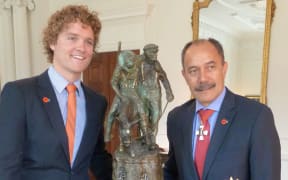The grass roots organisations that sprang up after the 2011 Canterbury earthquake are showing little sign of fading away, as life slowly returns to normal.

Student Volunteer Army president Alex Cheesebrough Photo: RNZ / Conan Young
In the weeks and months after the quake, the Student Volunteer Army shovelled the equivalent of the Empire State Building in silt from the streets.
But instead of melting away in the years afterwards, the group has grown to become Canterbury University's biggest club.
There is still plenty for their 2200 members to carry out tasks, including rubbish and graffiti clean-ups, said club president Alex Cheesebrough.
"We get quite a few requests from residents in Christchurch who may be having a hard time or they've got some sort of illness or something that prevents them from doing general tasks around the house."
The club aimed to introduce the concept of volunteering to students who may have never done it before, in the hope they would become hooked for life, he said.
Those they helped were pleased to see young people breaking the stereotype of students only being interested in drunken parties and setting couches on fire.
"You don't get a lot of opportunities or excuses basically to meet people that are older than you or even meet your neighbours. So doing volunteering projects is building those intergenerational communities that I think we'd really benefit from as a nation."
Community group Project Lyttelton has about 750 members, attracted by initiatives such as its labour exchange, Time Bank.
Time Bank was not just about painting fences or weeding gardens, and they now had the Christchurch City Council on board, said chairperson Margaret Jefferies.

Project Lyttelton's Margaret Jefferies Photo: RNZ / Conan Young
"The first significant trade was the council trained eight Time Bank members how to be life guards and the Time Bank was able to extend the hours of the swimming pool."
City councillor Raf Manji was this week visiting the Reserve Bank and Treasury to discuss the idea of using voluntary groups to maintain council parks and reserves.
"We have lots of men's sheds around in town which are great things which we support and they might come and say we're going to take over mowing this park, we're going to take over maintenance of this local community facility.
"So why not, they can earn cash, but it's going into the community."
The council had established a working group to look at the possibility of homeowners getting a rebate on their rates in return for doing the work of the council.
Post quake, people in Christchurch were ready to take back control of their communities, he said.
"There's all this pent-up enthusiasm and ability to do stuff in a new way where you actually have more ownership.
"If you have all the property owners and the community looking after lets say a mall space, then they're going to be out there tidying up all the time because it's their space, as opposed to waiting for the maintenance contractor to come round."
The city's social enterprise phenomenon was attracting attention overseas and next year it will host the Social Enterprise World Forum, bringing 3000 people to Christchurch to see first hand how the city is rebuilding itself.




